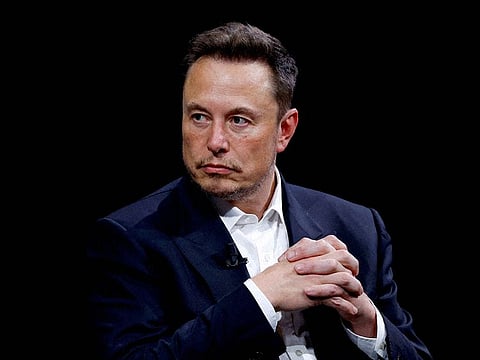Why Musk is right about OpenAI’s hypocrisy
Artificial Intelligence companies should be honest about their intentions as they evolve

Call it an epic troll by Elon Musk if you want, but the billionaire’s lawsuit against OpenAI puts a refreshing spotlight on the endless humanitarian posturing by AI businesses.
Musk has sued the world-leading AI company and its chief executive officer, Sam Altman, for breaking their founding agreement about building powerful AI systems “for the benefit of humanity.”
OpenAI still touts that mission on its website. “In reality … OpenAI Inc. has been transformed into a closed-source de facto subsidiary of the largest technology company in the world: Microsoft,” Musk says in his lawsuit, filed in a San Francisco court.
He’s right. But first, let’s bear in mind why Musk might be suing. The billionaire is notoriously thin-skinned and known for holding a grudge. In the years after he invested in and then failed to buy a rival AI company called DeepMind, he trash-talked its founder Demis Hassabis. After he backed OpenAI, he then tried to buy the company, and then when he was rejected, started his own AI firm, called X.ai.
Throwing a punch at OpenAI
So take his legal quest with a pinch of salt. He’s likely not only bitter, but eager to throw a punch at OpenAI.
Even so, Musk’s lawsuit points to an exasperating phenomenon among the world’s leading AI companies of starting life with promises to harness the transformative potential of artificial intelligence for the public good, only to end up falling under the sway of tech giants.
Musk founded OpenAI with Altman in 2015 to distribute AI’s benefits to humanity in a way that was transparent, open and would help the world become “more abundant … every year,” according to Altman. But over the years, OpenAI became more secretive, its corporate structure more convoluted, and Microsoft became the clear recipient of that abundance.
Google’s AI division DeepMind took a similar road. It was founded 14 years ago to build powerful AI that would cure cancer and stop climate change, and for years its website said in bold letters that it built AI to “advance science and benefit humanity.”
Then it sold itself to Google in 2015 and, in the heat of the recent generative AI arms race, changed its home page to tout “transformative products” like Gemini.
Stakes are high
Goals of curing disease and making everybody richer appear to have been overshadowed by a focus on enhancing the products of tech giants that could, ironically enough, put many people out of work.
Startups like Mistral are pulled in this direction because building more capable AI systems requires enormous amounts of computing power, which only the world’s largest tech companies have steady access to.
Stakes are higher with artificial intelligence systems that are being woven into all facets of life. (Just one example: British lawmakers are using generative AI to summarise feedback they receive from the public.) Tools being widely used for critical decisions shouldn’t be controlled by an opaque oligopoly.
If Musk’s lawsuit has any effect, it should be in forcing AI companies to be honest about their intentions as they evolve. His suit points out that Altman created a non-profit board at OpenAI that could fire him if he wasn’t trying to benefit humanity anymore. They did.
Then Altman returned and removed some of the board members who fired him. That was a good move for OpenAI’s business but a betrayal of its supposedly benevolent goals. The emperor was wearing no clothes, and Musk was right to call him out. — Bloomberg
Parmy Olson is a columnist covering technology



